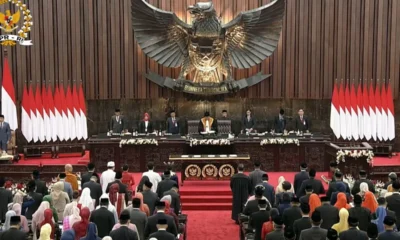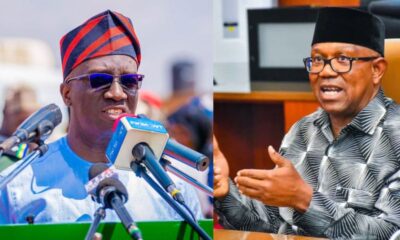Africa
NIPSS, PRNigeria and the Alarming Breach of Digital Ethics -By Usman Muhammad Salihu
But as a parent, I now worry for my young daughter and the millions like her growing up in a world where your data is your shadow—and sometimes, your shackle. We must do more. We must demand stronger data protection laws, foster a culture of privacy awareness, and hold institutions—no matter how revered—to account.

I never truly grasped the danger of exposing personal information in the digital space until Mr. Yushau Shuaib, my boss and mentor, handed me a book—Born Digital: Understanding the First Generation of Digital Natives” by John Palfrey and Urs Gasser.
It was an eye-opener, full of prescient warnings about the hidden costs of living in a world where our lives are increasingly mediated by technology. Ironically, neither of us imagined that the warnings in that book would soon play out so personally, and so dramatically.
Mr. Shuaib, a respected public relations expert and founder of PRNigeria, was a participant in the Senior Executive Course 47 at the National Institute for Policy and Strategic Studies (NIPSS). On May 2, 2025, he was abruptly suspended from the course.
His offense? Publishing articles that highlighted and supported President Bola Tinubu’s Digital and Blue Economy reforms. One article, “Understanding the ‘Blue’ in the Blue Economy,” praised the government’s innovative strides in marine resource development.
Another, “NIPSS Goes Digital,” celebrated the institute’s transition to a paperless administrative system—part of Nigeria’s broader digital transformation agenda. While he did not write or edit the latter, it appeared on his media platform.
In response to his suspension, Mr. Shuaib petitioned the President, citing harassment, cyberbullying, and professional ostracism. He argued that the action was punitive and lacked due process.
NIPSS, however, insisted he breached institutional policy by publishing materials related to the institute without clearance—a rule they claim he had previously been warned about.
But what escalated the matter beyond internal disciplinary lines was a chilling twist: PRNigeria’s editorial email account was allegedly compromised. Confidential communications between journalists and their sources, private story drafts, and editorial exchanges were reportedly accessed without consent.
The intrusion, attributed to officials of the same institute that suspended Mr. Shuaib, raised serious ethical and legal concerns. This was no ordinary data breach. It was a direct violation of professional boundaries, journalistic independence, and Nigeria’s own Cybercrime Act.
It represented something more insidious than just a lapse in judgment—it was, in many ways, a digital form of trespass. The incident sent ripples through media and security circles.
If an elite policy institute, tasked with grooming Nigeria’s future strategic leaders, could be implicated in such an act, what message does that send about our national commitment to digital ethics and rule of law?
It is precisely the kind of scenario “Born Digital” warns about—a world where our private digital footprints are vulnerable not just to hackers or corporations, but to institutions that should be protecting those rights.
In one haunting passage, the authors write: “Young people who are living their lives mediated by digital technologies will pay a higher price, sometimes down the road, for the way privacy is handled in this converged, hybrid environment…
“Most young people are extremely likely to leave something behind in cyberspace that will become a lot like a tattoo, something connected to them that they cannot get rid of later in life.”
That line has stayed with me. Because it is no longer just about young people. It is about all of us. Our identities, habits, preferences, locations, communications, and relationships—all are being recorded, stored, and sometimes exploited through what are now known as digital dossiers.
These dossiers are detailed archives of our lives, compiled by apps, platforms, websites, and even institutions. They are created often without our consent or awareness. While they promise convenience and personalized experiences, they also come with profound risks.
Privacy has become a currency we are forced to spend for access. And increasingly, it is a luxury only few can afford. The NIPSS breach is a wake-up call. It reveals the fragile boundaries between transparency and intrusion, between policy enforcement and personal violation.
It is a reminder that digital transformation must be matched by ethical responsibility and legal accountability. As a journalist, I have often lived under the illusion of digital safety.
But as a parent, I now worry for my young daughter and the millions like her growing up in a world where your data is your shadow—and sometimes, your shackle. We must do more. We must demand stronger data protection laws, foster a culture of privacy awareness, and hold institutions—no matter how revered—to account.
Our digital world should not come at the cost of our humanity, our dignity, or our freedom. The threats are real. The consequences are near. And the time to act is now.




























